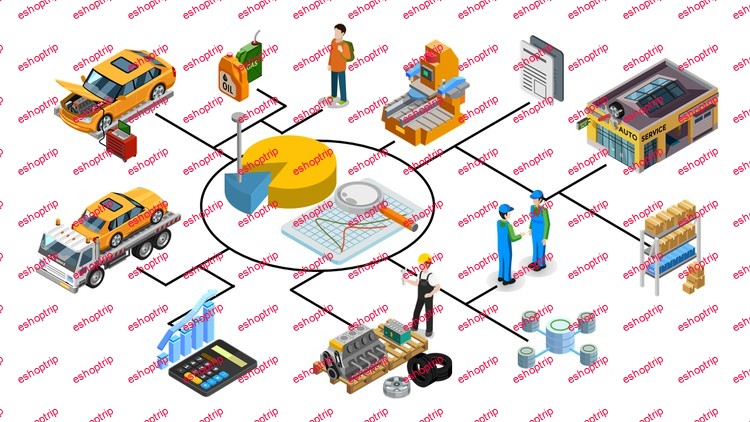Last updated 8/2022
Created by Christopher Olson
MP4 | Video: h264, 1280×720 | Audio: AAC, 44.1 KHz, 2 Ch
Genre: eLearning | Language: English + srt | Duration: 83 Lectures ( 7h 6m ) | Size: 1.59 GB
A solid foundation for Project Managers & Systems Engineers
What you’ll learn:
What a failure is and why documenting the definition is important
How complexity in a system decreases its reliability
What the different failure data distributions are and how they apply to system reliability
Failure Probability Density Function (PCF) and Cumulative Density Function (CDF) curves
The mean, median and mode of failure data distributions
The difference between Failure Rate λ(t) and Hazard Rate h(t)
The concept of the bathtub curve and its limitations
Reliability networks, types, and applications
FMEA and an FMECA, their relationships, and their application to system design concepts
The difference between Maintainability and Maintenance
Why the Operational Concept mission scenario are important to RM&A
The different maintenance levels and maintenance types
Metrics used to measure maintainability
Reliability-Centered Maintenance (RCM) is and its relationship to Condition-Based Maintenance (CBM)
Finding an optimal balance between reliability, maintainability and product lifecycle cost
The Potential-to-Failure (P-F) Concept
The types of availability: Operational Availability (Ao), Inherent Availability (Ai), and Achieved Availability (Aa), and how to calculate each
The relationship between Availability to Reliability and Maintainability
Requirements:
Product Development & Systems Engineering Foundations
Algebra I & II
Applied Statistics (helpful but not required)
Trigonometry / Pre-Calculus (helpful but not required)
Calculus I (Limits & Derivatives) (helpful but not required)
Calculus II (Integration, sequences & series) (helpful but not required)
Description:
This course focuses on actions project Managers and Systems Engineers can take to initiate or improve the performance of their systems.This course covers both ‘design for RM&A’ and ‘RM&A validation’ activities to provide the viewpoints of the system developer and the end user.This course also covers the essential mathematical calculations that are essential to initiating, specifying and testing RM&A requirements, to and includes the application of how you can use RM&A calculations to estimate and improve your overall system’s availability.In the Reliability Module, we will cover many core principles related to identifying, estimating, calculating and verifying reliability related requirements and models. Topics include common definitions, lifecycle analysis, reliability myths, failures, Failure Modes and Effects Analysis (FMEA), failure rates, life data distributions, probability density functions; exponential, logarithmic, gaussian, and Weibull distributions; reliability estimates, the hazard function, MTBF, MTTF, the “bathtub curve” and its 3 regions: DFR, SFR and IFR. You’ll learn about extending a product’s life, reliability calculations using reliability networks, stress and strain analysis, fault trees and FMECA reporting.In the Maintainability Module, topics include definitions, maintenance levels, FRACAS, Uptime (UT), Downtime (DT), MTTR, preventive and corrective maintenance, maintenance frequency, MTBM, Level Of Repair Analysis (LORA), Reliability Centered Maintenance (RCM) and Condition-Based Maintenance (CBM), Potential to Functional failures (PF), Maintainability cost, prediction, and allocation, and trade-offs between reliability and maintainability.In the Availability Module, we use what we learned about R&M and apply it to availability. We also cover the three primary types of availability: Achieved Availability (Aa), Inherent Availability (Ai) and Operational Availability (Ao).The course concludes by consolidating RM&A topics into a holistic picture. Topics include RM&A challenges, RM&A starting values, testing for reliability & maintainability, RM&A sequential testing and qualification and product life testing.
Who this course is for:
Product Development Managers & Executives
Project Managers
Systems Engineers
Development team members
Design Engineers
Hardware Engineers
Process Engineers
Maintenance Professionals
Logisticians
Reliability Newcomers
Homepage
https://anonymz.com/?https://www.udemy.com/course/introduction-to-reliability-maintainability-availability/










